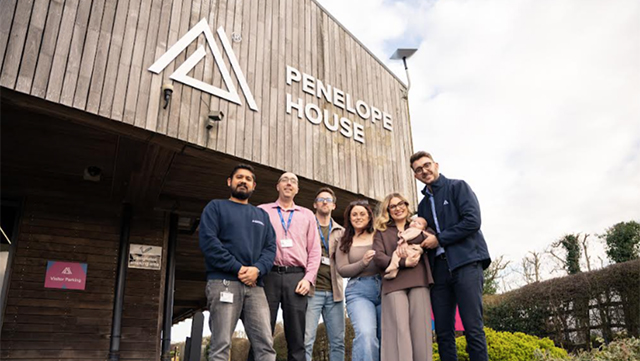The owner of a social housing development built in breach of a restrictive covenant may have to tear it down or pay significant compensation after losing a landmark Supreme Court ruling.
Housing Solutions has asked the country’s highest court to overturn a 2018 Court of Appeal decision refusing to allow modification of a set of restrictive covenants.
But in a ruling handed down today, the judges unanimously refused, saying the developer’s “cynical breach” of a covenant, followed by its application to have it overturned on public interest grounds, should be properly taken into account.
Developer and Housing Solutions’ predecessor in title, Millgate Developments, finished building 22 homes on land adjoining a children’s hospice near Maidenhead, Berkshire, in 2015, despite a restrictive covenant dating from the 1970s which expressly prohibited development.
The site was next to a plot that belonged to the Alexander Devine Children’s Cancer Trust charity, which had planned to build a hospice on the site. The trust had the right to exercise the convenant.
Millgate ignored the covenant, built the development and then applied to the Upper Tribunal to have the covenants overridden. This was opposed by the hospice owner, the trust, who according to Supreme Court judge Lord Burrows, giving judgment today, wanted the terminally ill children “to enjoy the grounds without being overlooked” by a housing development.
The central legal issue of the case is the correct approach to the “public interest” requirement on an application for the modification or discharge of restrictive covenants under section 84 of the Law of Property Act 1925.
“This is the first time the highest court has had to rule on Section 84,” Lord Burrows said. “All this may sound dry and legalistic but is has real human interest.”
He said the the dilemma was that the court was being asked to choose between a devilment of “much-needed social housing” and a charity for for “terminally ill children.”
The Upper Tribunal (Lands Chamber) ruled in the developer’s favour that the covenants could be overridden because they were against the public interest in impeding “the continued existence” of much-needed social housing.
However, the Court of Appeal reversed the decision following a legal challenge from the trust. It found that, having been presented with a “fait accompli”, the UT had misapplied the public interest test.
Lord Burrows agreed the Upper Tribunal was wrong. However he said the the Supreme Court had decided the Upper Tribunal erred when it used its “discretion” to remove the covenants.
“The Tribunal didn’t properly take into account the cynical conduct” of the developer, who knowingly broke the convents and applied to have them removed after the development had been built, he said.
He said the ruling did not mean the 13 social houses on the plot would have to be torn down.
The charity can seek an injunction from the court based on the ruling, he said, and the court will decide what it appropriate.
While the court could order that it should be demolished, the charity could ask for financial compensation instead.
“The Supreme Court’s decision in favour of the hospice feels like the right one but it was not a foregone conclusion,” said Paul Tonkin, a real estate partner at Hogan Lovells.
“It seems the message is that poor conduct will not always be fatal but those who skate on thin ice should not complain when they fall in.”
“The obvious implication from the judgment is that developers which seek to modify a covenant on ‘public interest’ grounds should ensure their application is certainly made before they start to build and possibly even before planning permission is sought,” said Tim Rayner, joint head of real estate disputes at Irwin Mitchell.
“Interestingly, the Supreme Court was ‘sorely tempted to agree’ with the principle that a developer which commits a cynical breach should have its application refused. However, it declined to do so on the basis that it would be too rigid a rule.
“That comment should, however, weigh heavily on the minds of developers when considering how best to try to overcome restrictive covenants which impede reasonable use and are otherwise contrary to public interest.
“Although this was the first time the specific issue has come before the Supreme Court, the developer’s behaviour meant the court did not need to delve too far into the much wider (and potentially politically sensitive) issue which many thought this judgment might cover,” he said.
In particular, it didn’t consider ” whether the need for housing, particularly the affordable housing which this country so badly needs, should trump private rights where they impede that reasonable use of land.”
Alexander Devine Children’s Cancer Trust (Respondent) v Housing Solutions Ltd (Appellant)
Supreme Court (Lord Kerr, Lord Lloyd-Jones, Lord Kitchin, Lord Hamblen, Lord Burrows) 6 November 2020










